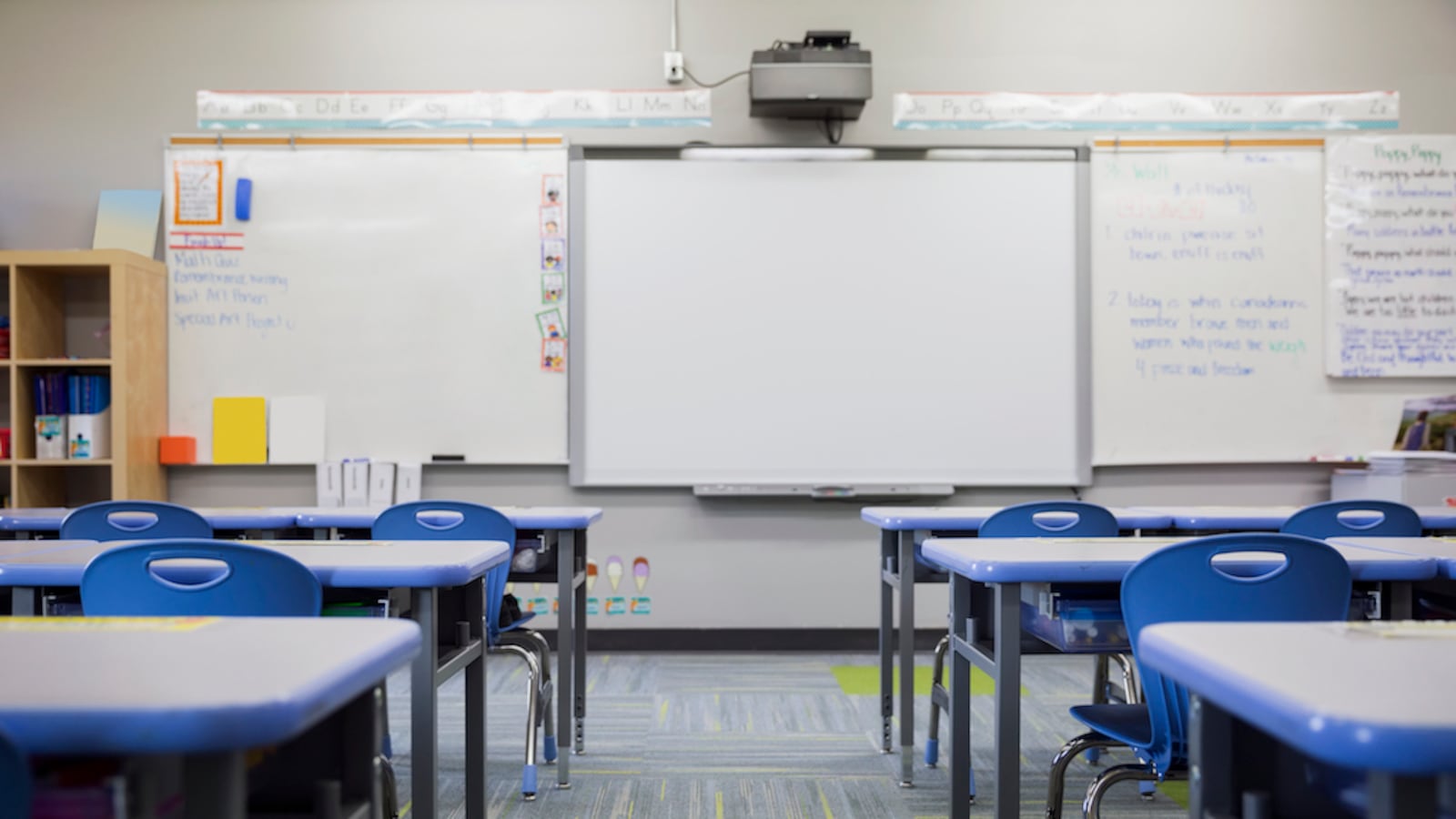When the state tallied the graduation rate at tiny Medora High School in 2017, the numbers were impressive: Of the 16 students in the graduating class, 15 had earned diplomas and one was still in school.
But those figures left out a key detail. Seven other students who were expected to graduate from Medora that year had left to be home-schooled, including three seniors, according to state records. Because Indiana considers home-school equivalent to transferring to another school, those students are left out of the graduation rate.
Medora is one of dozens of high schools where large shares of students who were expected to graduate in 2017 left to home-school — many who were seniors short on credits. Schools where that happens could soon be impacted by a new rule that aims to ensure that schools do not overcount the number of students who leave high school to home-school and potentially undercount the number of teens dropping out.
The Medora superintendent said there is little officials can do when parents decide to withdraw their children to home-school. But the high number of students leaving to home-school in some districts raises questions for at least one Indiana lawmaker, who suggested that some schools may encourage students who are behind to home-school.
“There is a real advantage to a school, if you want to bump up your grad rate by having kids leave to home-school,” said Bob Behning, an Indianapolis Republican who chairs the House Education Committee. For some schools, removing students who leave to home-school may be “distorting” graduation rates, he said.
The change in law, which was recently approved by both legislative chambers and is awaiting the governor’s signature, would create a special process for schools where large numbers of students who are not on track to graduate are categorized as leaving to home-school. Those schools would be required to ask permission from the state board of education and show good cause before removing students who leave to home-school from the graduation cohort. If they don’t meet the threshold, the students would remain in the cohort.
Medora Superintendent Roger Bane said it’s “ridiculous” to think that officials in a tiny rural district such as Medora would encourage students to home-school. “We need the funding to keep the school open. We’re going to do everything we can to help these students stay in school and graduate,” he said.
Instead, Bane said the problem is that the state makes it too easy for families to home-school without accountability. Parents who don’t value education and are tired of fighting with their teens can easily fill out a home-schooling registration form online, take it to the high school, and withdraw them, he said. He argued that the state should require assessments for home-schoolers to ensure parents are educating their children.
While students who leave may initially intend to home-school, Bane said, “most of them end up just being dropouts.”
Robert Balfanz, director of the Everyone Graduates Center at Johns Hopkins University, said the proposed change to how the state counts home-school students should help improve the accuracy of graduation rates. But, ultimately, he thinks students who leave high school to home-school should not be removed from the cohort.
It seems especially unlikely that data is accurate when it shows significant numbers of students leaving to home-school in their senior year, he said.
“Just think about the social structure of high school,” Balfanz said. “This is not the time when kids are saying to their parent, ‘I gotta get out of this school.’ ”
Tara Bentley, executive director of the Indiana Association of Home Educators, said that families often decide to withdraw their children to home-school when they are in high school. But the number of students reported as leaving to home-school at some Indiana high schools, particularly in their senior year, seems inflated, she said. And, the association sometimes receives calls from families who have been told by their public school to withdraw their children and home-school instead, she said.
Advocates don’t want teens who legitimately leave to home-school to be counted as dropouts, Bentley said. But at the same time, they don’t want home-schoolers to be “lumped in” with students who are truant or drop out of school.
“We are families who have decided to educate our children at home,” Bentley said. “We’re not families who have let our kids drop out of school.”

